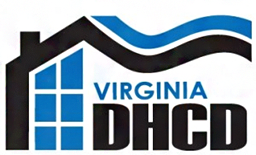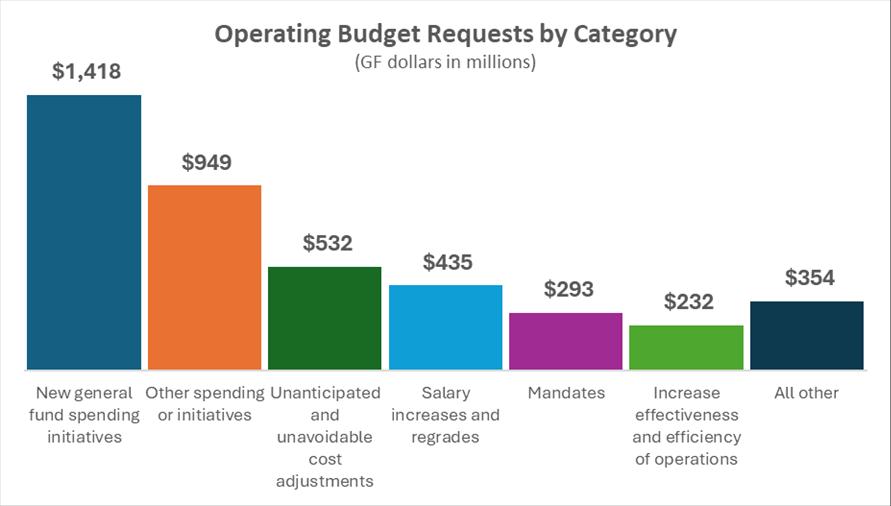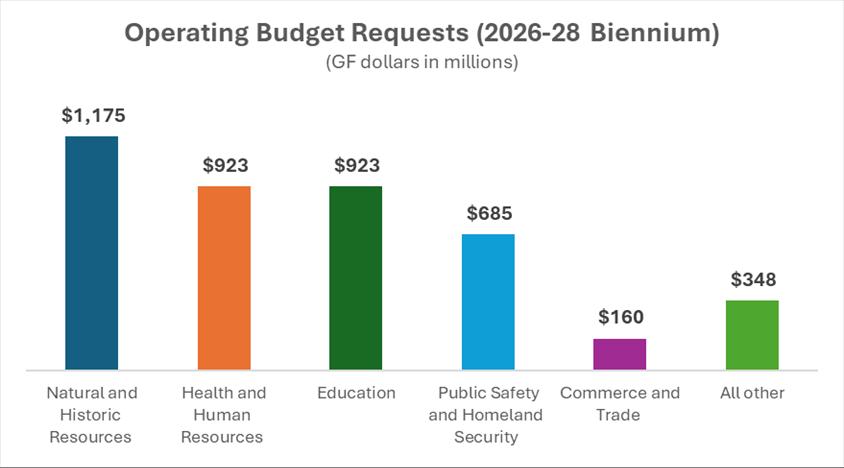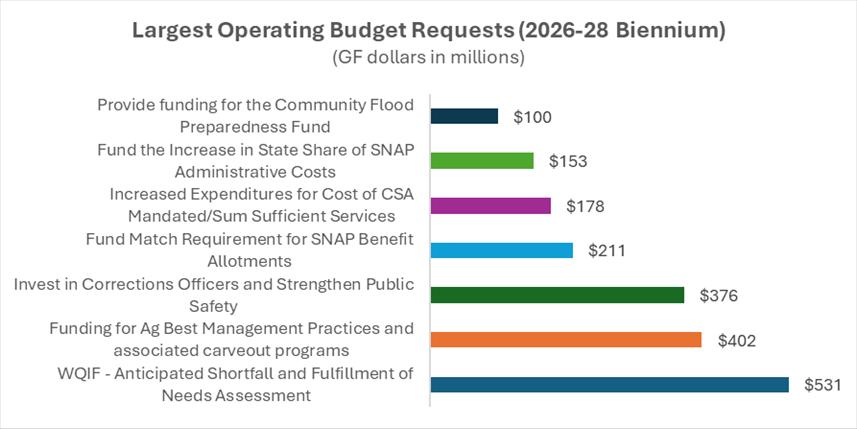eNews – October 31, 2025
Elected Officials Conference with FOIA/COIA training in January, Submit comments on transit funding changes, Executive order for food assistance...and more!
Friday, October 31, 2025/Categories: eNews

This edition of eNews is sponsored by the Virginia Department of Housing and Community Development (DHCD) which is committed to creating safe, affordable and prosperous communities to live, work and do business in Virginia. Learn more >
In this issue:
VML News
Finance
Health & Human Services
Transportation
Opportunities
VML News
 Elected Officials Conference happening January 7-8 will include certified FOIA/COIA training
Elected Officials Conference happening January 7-8 will include certified FOIA/COIA training
For 2026, VML is pleased to offer an expanded take on our annual Elected Officials Conference. Attendees can choose to register for one or both days. This in-person event is offered to local officials and staff from VML member localities.
Registration and more information are available on VML’s website here >.
Wednesday, January 7 - Elected Officials and Public Safety (1:00 PM - 4:30 PM)
An afternoon of sessions dealing with public safety for elected officials. Topics will include Community Policing for the Elected Official and the Officer as well as Personal Safety for Public Officials.
There will be a reception for attendees beginning at 5:00 PM.
Thursday, January 8 - Elected Officials Boot Camp (8:30 AM - 4:00 PM)
The Elected Officials Boot Camp is a valuable training and networking opportunity for newly elected and veteran local officials from across the Commonwealth.
Sessions on January 8 will include Freedom of Information Act (FOIA) and Conflict of Interest Act (COIA) training provided by staff from the FOIA and COIA councils. As such, these sessions will satisfy the bi-annual requirement for these topics.
Breakfast and lunch are included. Attendees arriving the day before are invited to attend the reception happening at 5:00 PM on January 7.
VML Contact: Rob Bullington, rbullington@vml.org
Finance
September revenues show continued strength despite mixed economic signals
Last week, Secretary of Finance, Steven Cummings reported that general fund revenues through September came in at $374 million or 5.1% higher than reported one year ago. Compared to the forecast upon which the budget is built, general fund revenues were $561 million or 7.9% greater than anticipated.
Describing year over year growth in September 2025 as “exceptional”, it was interesting to look back at the monthly revenue report from four years ago. In September 2021, year over year growth was $569 million or 10.6% higher than the prior year. At the time, general fund revenues that were flowing in weren’t described as exceptional or amazing or any other superlative. It was simply the monthly revenues.
We seem to be getting away from the “just the facts, ma’am” approach to reporting monthly general fund revenues, personified by former Secretary of Finance Ric Brown. Mr. Brown was a fiscal policy icon around Capitol Square for many years, whose reporting of the monthly revenues could be exceedingly boring but beyond reproach, primarily because he merely gave us the numbers.
When you look at the numbers through September 2025, they’re certainly positive. Having $561 million in the bank when combined with $1.6 billion in other available one-time, general fund revenues, as Secretary Cummings noted, will help alleviate some of the economic crosswinds we’re likely to face; and there are many.
But as Dwayne Yancey, from the Cardinal News reported recently, those stiff winds include the fact that employers in northern Virginia and Hampton Roads are shedding jobs, the Commonwealth’s economic growth is among the lowest in the country and projected to remain sluggish for the next two years, and unemployment, while still less than the national economy, is rising statewide.
He also points out that the jobs being created in the Commonwealth are far less lucrative than the jobs being lost, a potential hit to future general fund revenues.
And yet, in the past few days, even as sizeable job layoffs are announced by major employers, the stock market continues to pierce previous highs. At this juncture, it’s important to remember that the market is not the economy.
As Governor Youngkin and his team prepares the revenue forecast upon which the next budget will be built, there will certainly be a multitude of economic factors to consider, both positive and negative. With countervailing forces swirling about, a conservative revenue forecast would seem to be warranted to ensure sufficient revenues can support anticipated increases in Medicaid, K-12 education, and a laundry list of federal reductions that continue to escape proper scrutiny by the Commonwealth’s budget writers. In less than two months, we’ll get a sense where the Governor assumes we’re headed.
VML Contact: Joe Flores, jflores@vml.org
State agency budget requests exceed $4.2 billion
Undaunted by the economic uncertainty facing the Commonwealth and projected general fund revenues that remain a mystery, state agencies requested more than four billion in new monies for the upcoming biennium.
Excluded from these official operating budget requests are mandatory spending items that include funding for the Medicaid Forecast and K-12 Rebenchmarking. Back of the envelope calculations initially pegged the cost of providing health and long-term care services for Medicaid recipients and updating the cost of educating Virginia school children at $1.8 billion for the biennium. Word on the street, however, is that the cost of maintaining currently funded services for these major state programs is probably higher than that.
Also missing from these totals are any of Governor’s tax policy changes or program initiatives that he will unveil with his final budget proposals in mid-December.
The table below illustrates how state agencies categorized their budget requests that were submitted to the Department of Planning and Budget.

The Secretary of Natural and Historic Resources had the most expensive agency budget request at nearly $1.2 billion. Combined, Health and Human Resources and Education – which includes K-12 and higher education – accounted for more than $1.8 billion in budget asks (see table below).

Two requests within the Secretary of Natural and Historic Resources account for nearly $1.0 billion in budget asks as shown below – funding to address a shortfall in the Water Quality Improve Fund ($531 million) and resources for agricultural best management practices ($402 million).

Of note for local governments, CSA officials requested $178 million to fully fund services for children and adolescents and DSS staff asked for $364 million to address cost shifts to the Commonwealth from changes to the federal SNAP program. Funding to address these issues will be critically important for localities. VML staff will be sure to highlight these important budget requests in the days ahead.
VML Contact: Joe Flores, jflores@vml.org
Health & Human Services
Joint Health Commission chooses 2026 study topics
The Joint Commission on Health chose its 2026 study topics during meeting held Oct. 22 in Richmond.
The Commission considered 16 possible topics, and chose the following topics for informational briefs to the Commission in 2026:
- Program Changes for the Federal Medicaid program
- Financial challenges to Virginia’s rural hospitals
- Role of assisted living facilities in the continuum of long-term care services
- The public health impacts of e-cigarette use and e-cigarette retailers
The Joint Commission on Health Care is a legislative commission that includes a total of 18 members from the House and Senate as well as the Secretary of Health and Human Resources. Delegate Rodney Willett (D-Henrico) chairs the Commission.
VML Contact: Janet Areson, jareson@vml.org
Executive order establishes stop-gap food assistance program for November
With a looming deadline of Nov. 1 for the cut off of federal benefits through the Supplemental Nutrition Assistance Program (SNAP), Gov. Glenn Youngkin issued Executive Order 54 on Oct. 23, 2025, to declare a state of emergency and outline a plan to offer temporary state-funded benefits to current SNAP recipients during the month of November as necessary (i.e., until Congress comes to agreement on a continuing resolution to fund the federal government). This assistance is only guaranteed during November and can be rescinded if Congress passes a spending plan any time during the month.
The initiative is called Virginia Emergency Nutrition Assistance. Benefits will be provided to current SNAP recipients on a weekly basis (federal SNAP benefits are issued monthly), and existing rules around use of benefits will be enforced. It is expected to cost Virginia $37.5 million a week to assist 854,000 Virginians - approximately 440,000 households - receiving SNAP.
As well as SNAP assistance, the Youngkin Administration announced that it would allocate $1.0 million to Virginia’s foodbanks during November.
Not addressed at this time is the potential funding loss to local departments of social services if Congress does not reach an agreement on federal spending. The Virginia League of Social Services Executives told Youngkin in a letter last week that the Virginia Department of Social Services had informed local departments that if the shutdown were to extend beyond Oct. 31, “reimbursement to localities for November expenses may not be provided, depending on the duration of the shutdown.” The November reimbursements would take place in late December; Virginia Secretary of Health and Human Resources Janet Kelly told the Richmond Times Dispatch that local offices would receive their October reimbursements by Nov. 30.
VML Contact: Janet Areson, jareson@vml.org
Transportation
Submit comments on proposed transit funding changes by Nov. 21; webinar happening Nov. 12
The Virginia Department of Rail and Public Transportation (DRPT) is currently accepting public comments on proposed changes to transit funding for operating and capital assistance.
Proposed changes can be found at MERIT Operating and Capital Assistance Proposed Program Changes.
Comments will be accepted through 5:00pm on November 21, 2025, and can be sent to drptpr@drpt.virginia.gov or by mail to the Department of Rail and Public Transportation directly at 600 East Main Street, Suite 2102, Richmond, VA 23219.
To learn more about the proposed changes to transit funding DRPT is hosting a webinar November 12, 2005 at 1:00 pm. The session will review the proposed program changes, revisit information from previous meetings, and provide an opportunity for attendees to ask questions.
VML members are encouraged to attend and discuss potential impacts with transit system operators in your locality. Impacts will vary by system, region, and performance measures under consideration.
To attend the MERIT review webinar – Please Register Here.
VML Contact: Mitchell Smiley, msmiley@vml.org
Opportunities
Addressing Food System Resilience in Virginia: Free webinar December 2
Join VML in collaboration with Virginia Tech on December 2, from 12:00 PM to 1:00 PM on Zoom for a listening session on Addressing Food System Resilience in Virginia.
Please register here >.
The listening session is part of the Cultivating Rural Vitality in Virginia’s Food System (CRRV) project, a collaborative seed project by Virginia Tech’s College of Agriculture and Life Sciences and Virginia Cooperative Extension. This project is a step towards longer term objectives to develop an actionable plan for Virginia food system resilience.
Contact: Lia Kelinsky-Jones, kelinskyjones@vt.edu
National Fitness Campaign: 2025 grant deadline approaching
Virginia Municipal League is pleased to share the following grant opportunity with members interested in bringing free-to-use, accessible outdoor wellness spaces to their communities.
Through the National Fitness Campaign’s Healthy Cities Grant Program, more than $350,000 in funding is available to support municipalities and schools across Virginia who want to join a growing movement uniting cities and schools across the country to champion health, connection, and accessible wellness for all.
National Fitness Campaign has partnered with more than 700 cities and schools to deliver free, outdoor wellness infrastructure within a 10-minute walk of home—bringing daily movement, connection, and health prevention to over 14 million people nationwide. Our mission in facilitating the country’s largest public-private community wellness partnership is to measurably reduce healthcare costs and improve quality of life through innovative, publicly accessible wellness infrastructure, promotions, and programming.
This summer, the City of Martinsville became a statewide leader in outdoor wellness with the launch of Virginia’s first Fitness Court® Studio at Baldwin Park.
“Investing in public health means investing in the future of Martinsville,” said Mayor L.C. Jones. “This new Fitness Court Studio is a symbol of our city’s commitment to wellness, equity, and community strength.”
The project, supported by the Harvest Foundation, created an open-air wellness hub designed for adults of all abilities, offering flexible space for group classes like Zumba and dance, alongside the signature Fitness Court.
“This is a wonderful example of what it looks like when we align missions,” said Sandy Strayer, program officer at the Harvest Foundation. “This studio gives our community a place to gather, to connect, and to improve health.”
Martinsville now joins Bedford, Sterling, Pulaski County, and other partners leading the movement to make outdoor wellness a permanent part of community life across the Commonwealth. Municipalities of all sizes are invited to pre-qualify for grant funding by attending a 30-minute virtual briefing with Jeff Pressly from NFC.
Reserve your briefing today to learn how your community can join the movement and lead the next wave of healthy infrastructure development in Virginia.
Schedule a briefing call here >.
NFC Contact: Sarah Morgan, sarah@nfchq.com